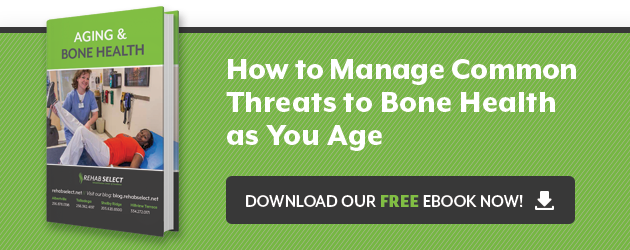 Is it safe for older people to exercise? For most people, the answer is a resounding "yes."
Is it safe for older people to exercise? For most people, the answer is a resounding "yes."
Understanding health benefits of exercise for seniors is relatively straightforward: The American Academy of Family Physicians states that almost all older people can benefit from at least some activity. Regular, sensible physical activity helps protect seniors from chronic diseases, improves mood, lessens the chance of injury, and helps prevent situations that can lead to rapid decline, like falls.
Moderate physical activity is good for people regardless of age, say the experts. That holds true even for most people with chronic diseases. Although exercise programs should be undertaken with the blessing of and supervision by medical personnel, they are safe and effective, and can most definitely improve seniors' quality of life.
Understanding health benefits of exercise
What improves when older people exercise?
- Cardiovascular and cardiorespiratory function
Exercise reduces the risk of high blood pressure and heart disease. If high blood pressure is already a problem, regular exercise will lower it over time.
- Bone density
Osteoporosis is a common condition among the elderly. As part of understanding health benefits of exercise for the elderly, it is worth noting that women can lose 2% of their bone mass every year if they don't do weight-bearing exercise once menopause occurs. Men, too, can experience bone loss as they age. Exercises such as strength training and walking can significantly reduce bone mass loss, help strengthen bones, and improve balance, which lessens the risk of falling.
- Immunity
A stronger immune system means fewer infections and illnesses, and quicker recovery if they do happen.
- Gastrointestinal health and activity
Digestive problems, including difficulties with elimination, are common among older people. Regular exercise keeps things "moving smoothly along" in the gastrointestinal tract; exercise, along with a fiber rich diet that contains plenty of fruits and vegetables, keeps the digestive system running smoothly and can reduce if not eliminate many of the problems older people commonly experience.
- Mood and memory
Exercise produces feel-good hormones called endorphins, the body's natural antidepressants. These boost mood and reduce feelings of depression or sadness.
Exercise also benefits the brain, helping maintain normal function and preventing memory loss, dementia, and general cognitive decline. Experts say that understanding health benefits of exercise (and then doing them) may even slow the progress of diagnosed disorders like Alzheimer's disease.
- Self-confidence, self-worth, and independence
Nothing can be more devastating to one's self-worth and self-confidence than the fear of falling and the risk of injury and ultimate decline that may cause. Exercise can improve self-worth, self-confidence, and independence because it puts older people back in control. When they can stay steady on their feet and perform necessary tasks of daily living, they can also stay independent for a much longer period of time.
- Sleep
The common "wives tale" is that people need less sleep as they get older. That may not be true. Many seniors report having difficulty sleeping, or staying asleep once they have fallen asleep. Exercise improves sleep quality in older people by making it possible to fall asleep quickly and sleep more deeply so that sleep is restorative and refreshing.
Getting started
- Get permission
Those who haven't exercised for a while should get permission from their doctors before they do so. Enrolling in a supervised exercise program, such as that offered by a local skilled nursing facility, may also be appropriate.
- Start small
Walking as little as 10 minutes a day is beneficial. As conditioning improves, the amount and variety of exercises can be expanded to maintain fitness, increase the challenge of the exercise, and simultaneously reduce the chances of injury.





